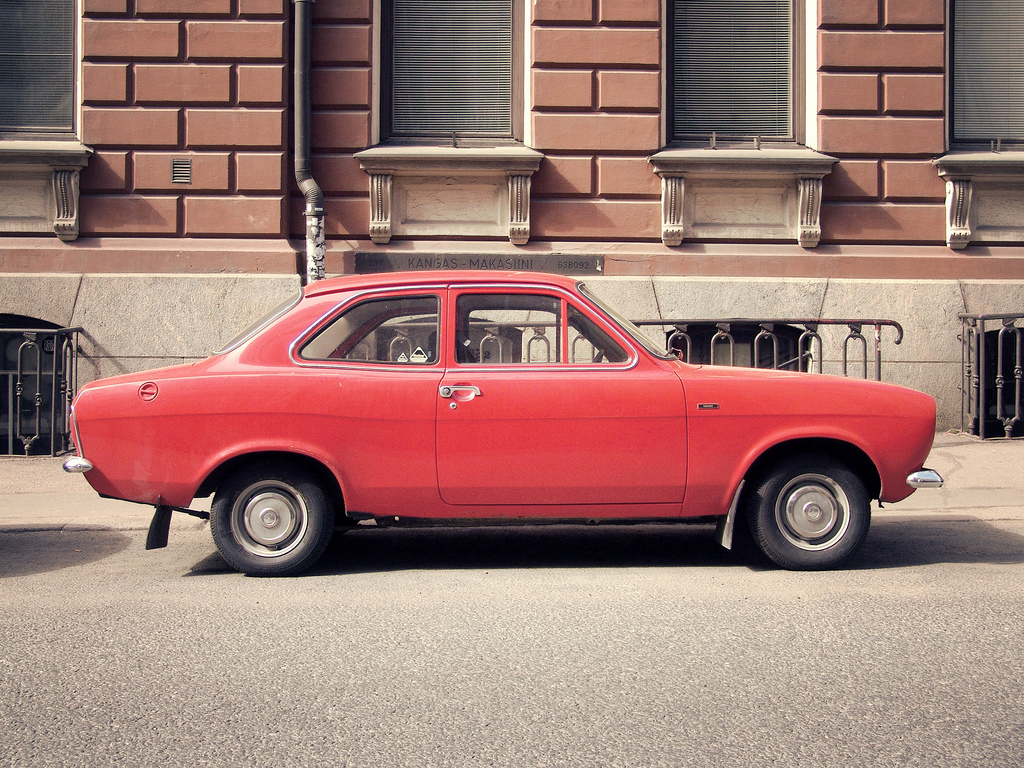
The Redness of The Car is Not Something Simple
“Think of a brand new automobile on a rainy day. And it’s parked on the street and down at the street corner there’s a busy intersection and there’s a red light and it’s a green light. And now you look at your car sitting there and it’s red across it’s surface but it also has highlights where it reflects the green from the traffic circle and now the red from the traffic circle. Over here there’s a little bit of direct sunlight that hits it and it shines brightly almost like hot rice. And over there where it’s in shadow it’s almost a grayish, dull red. And we’re able to look at this car and see something and see two things simultaneously. We can see its redness, its uniform redness, and we can also see this fabulous variation in color across its surface. Here it’s one color, there it’s one color. It’s constantly changing, it’s constantly interacting and I think that what the redness of the car is, is not something simple, but something complex. It’s the way the car changes as the light moves, as the light’s change, as you move in relation to it. The color is this sort of dynamic quality that depends on our nervous system and our brains but also on the car and the environment and the surface of the car and it’s interaction with the environment. So I think the color of the car or colors is what I called earlier in our conversation, environmental properties. Whereas our tradition, our philosophical tradition and maybe our common sense tends to think of them as simple, kind of simple sensations. I think that’s a misleading analogy.” – Alva Noë
The above transcribed quote comes from a 2009 discussion between philosopher Alva Noë and New Age spiritualist, Deepak Chopra, in which they talk about Noë’s book Out of Our Heads: Why You Are Not Your Brain and Other Lessons from the Biology of Consciousness. I’m simultaneously reading Noë’s book in tandem with Nick Chater’s (which I’ve talked about recently as well) and, although I’m sure the two philosopher-scientists would disagree on a bunch of stuff (e.g. Noë has a much less reductive view of the mind and perception and I doubt he would be comfortable with the label of materialist, whereas Chater has a unique “cooperative computationalist” view of the mind and probably would call himself a materialist), both thinkers also have a lot of commonalities as well (e.g. they both emphasize a sort of ecological or process-relational paradigm in their work).
…
Photo above by Pesterussa

0 Comments